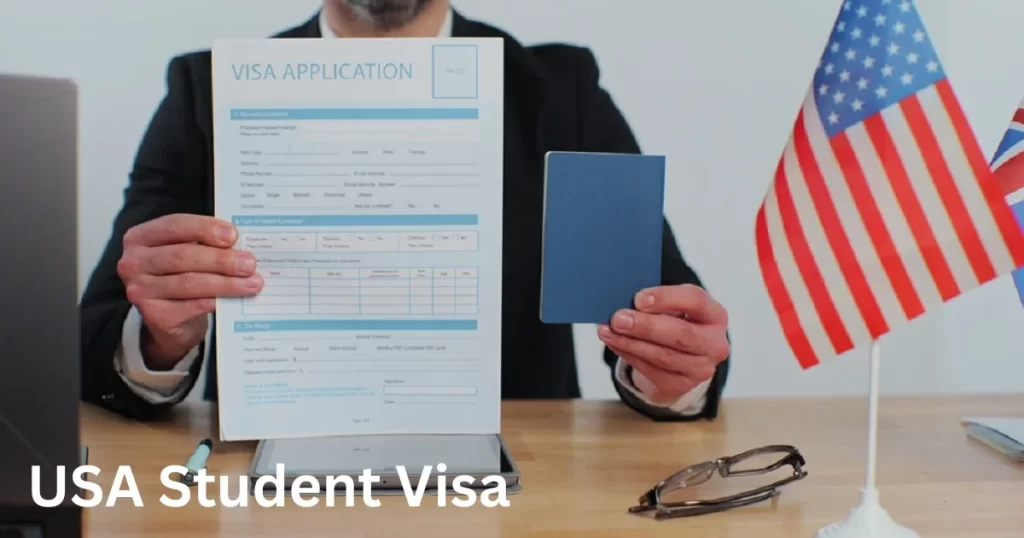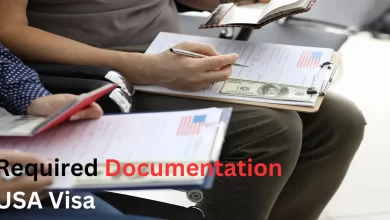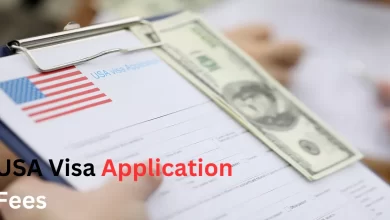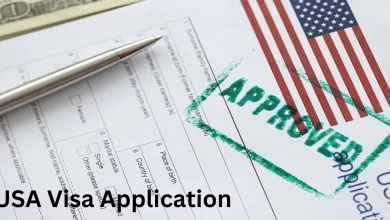
Studying in the USA is a dream for many international students. With its world-class educational institutions and diverse culture, the USA offers numerous benefits and opportunities for those seeking higher education. However, before embarking on this journey, it is crucial to understand the USA student visa requirements and application process. This article overviews these requirements and guides you through the application process.
Overview of USA Student Visa Requirements and Application Process
Obtaining a student visa is one of the most critical steps in pursuing your education in the USA. The primary visa category for international students is the F-1 visa. To qualify for an F-1 visa, you need to meet certain requirements:
- Admission to a Student and Exchange Visitor Program (SEVP)-certified school: You must be accepted by a SEVP-certified institution, which includes universities, colleges, and vocational schools.
- Sufficient financial support: You must demonstrate that you have enough funds to cover your tuition fees, living expenses, and other financial obligations while studying in the USA.
- Fluency in English: Proficiency in the English language is essential to succeed in an American educational institution. You may need to provide proof of English language proficiency through standardized tests such as TOEFL or IELTS.
- Non-immigrant intent: You must demonstrate that you have no intention of immigrating permanently to the USA and that you intend to return to your home country after completing your studies.
The application process involves several steps, including completing the online Form DS-160, paying the application fee, scheduling an interview at the nearest US embassy or consulate, and attending the interview.
Benefits and Opportunities of Studying in the USA
Studying in the USA offers numerous benefits and opportunities for international students. Some of these include:
- Quality education: The USA is home to many prestigious universities and educational institutions renowned for their academic excellence and diverse programs.
- Wide range of programs and majors: The USA offers a vast selection of academic disciplines and majors, allowing students to explore and pursue their interests and career goals.
- Cultural diversity: Studying in the USA provides a unique opportunity to immerse yourself in a multicultural environment, interact with students from different backgrounds, and broaden your global perspectives.
- Research opportunities: Many American universities provide research opportunities, enabling students to work alongside renowned scholars and contribute to groundbreaking discoveries.
- Career prospects: A degree from a reputable American university can enhance your career prospects, as it is widely recognized and valued by employers worldwide.
In conclusion, understanding the USA student visa requirements and application process is crucial for international students planning to study in the USA. By meeting the requirements and seizing the opportunities available, you can embark on a rewarding educational journey in the USA.
Types of USA Student Visas
F-1 Visa: Requirements and Application Process
The F-1 visa is the primary visa category for international students studying in the USA. To obtain an F-1 visa, there are certain requirements that you need to fulfill:
- Acceptance by a SEVP-certified school: You must be admitted to a Student and Exchange Visitor Program (SEVP)-certified institution, which includes universities, colleges, and vocational schools.
- Sufficient financial support: You must demonstrate that you have enough funds to cover your tuition fees, living expenses, and other financial obligations while studying in the USA.
- English language proficiency: Proficiency in the English language is essential to succeed in an American educational institution. You may need to provide proof of English language proficiency through standardized tests such as TOEFL or IELTS.
- Non-immigrant intent: You must demonstrate that you have no intention of immigrating permanently to the USA and that you intend to return to your home country after completing your studies.
The application process involves:
- Completing the online Form DS-160.
- Paying the application fee.
- Scheduling an interview at the nearest US embassy or consulate.
- Attending the interview.
J-1 Visa: Requirements and Application Process
The J-1 visa is another type of visa available for international students. It is specifically designed for participants in exchange visitor programs. The requirements and application process for the J-1 visa may vary depending on the specific exchange program and sponsor organization. It is important to consult with your program coordinator or sponsor organization for detailed information on the requirements and application process for the J-1 visa.
In conclusion, understanding the requirements and application process for the F-1 and J-1 visas is crucial for international students planning to study in the USA. By fulfilling the requirements and following the application process, you can embark on your educational journey in the USA and take advantage of the benefits and opportunities it offers.
Eligibility Criteria
Academic requirements for obtaining a USA student visa
To obtain a student visa for studying in the USA, certain academic requirements need to be met. These requirements may vary depending on the level of study and the institution you are applying to. Generally, you must provide proof of acceptance into a SEVP-certified school, such as a university, college, or vocational program. Additionally, you may need to demonstrate proficiency in the English language through standardized tests like TOEFL or IELTS.
Financial capacity and sponsorship requirements
Financial capacity is an important aspect of the student visa application process. It would be best to show that you have sufficient funds to cover your tuition fees, living expenses, and other financial obligations while studying in the USA. This can be demonstrated through bank statements, scholarship awards, or financial sponsorship letters. It is important to prove that you can financially support yourself throughout your education.
Understanding and fulfilling the academic and financial requirements for a student visa is essential for international students planning to study in the USA. By meeting these criteria and following the application process, you can embark on a successful educational journey in the United States.
Application Process
Applying for a USA student visa may seem daunting, but with the right information and preparation, it can be a smooth journey. Here is a step-by-step guide to help you understand the process and the documents required for the application.
Step-by-step guide for applying for a USA student visa
- Academic Acceptance: Begin by securing admission to a SEVP-certified school, such as a university, college, or vocational program.
- Pay the SEVIS Fee: After receiving your acceptance letter, you must pay the SEVIS fee online. This fee helps fund the Student and Exchange Visitor Information System (SEVIS).
- Complete the Online Application Form: Fill out the DS-160 form online, providing accurate information about yourself and your study plans in the USA.
- Schedule an Embassy/Consulate Appointment: Once the DS-160 form is completed, schedule an appointment at the nearest US embassy or consulate in your home country.
- Prepare the Required Documents: Gather all the necessary documents, including your passport, DS-160 confirmation page, SEVIS fee payment receipt, academic documents, financial documents, and any other supporting documents required by the embassy or consulate.
- Attend the Visa Interview: On the scheduled date, attend the visa interview at the embassy or consulate. Be prepared to answer questions about your study plans, finances, and ties to your home country.
- Wait for Visa Approval: After the interview, wait for the visa approval. If approved, your passport will be stamped with the student visa, allowing you to travel to the United States.
Read more: USA Visa Application Process
Documents required for the application
When applying for a USA student visa, you will need to provide the following documents:
- Valid passport
- DS-160 confirmation page
- SEVIS fee payment receipt
- Academic acceptance letter from a SEVP-certified school
- Financial documents demonstrating your ability to cover tuition fees and living expenses
- English language proficiency test results (such as TOEFL or IELTS)
- Any additional documents requested by the embassy or consulate
Ensuring that you have all the required documents and following the application process diligently will increase your chances of obtaining a student visa for studying in the USA. Good luck with your educational journey!
USA Student Visa: Interview Preparation
Common interview questions and how to prepare for them
Preparing for a visa interview can be nerve-wracking, but with the right preparation, you can increase your chances of success. Here are some common interview questions and tips on how to answer them:
- Tell me about yourself: Prepare a concise and well-rehearsed introduction highlighting your academic background, career goals, and why you chose to study in the USA.
- Why did you choose this university/program? Research the university and program thoroughly. Be specific about why it is a good fit for your academic and career aspirations.
- What are your plans after completing your studies? Be honest and share your goals. Discuss how your education in the USA will benefit you in achieving those goals.
- How do you plan to fund your education? Provide details about your financial plan, including scholarships, sponsorships, personal savings, or loans. Be prepared to demonstrate that you can cover your tuition fees and living expenses.
Read more: Best tips for USA Visa Interview: Dos and Don’ts
Tips for a successful visa interview
To ensure a successful visa interview, consider the following tips:
- Be well-prepared: Familiarize yourself with the application process and required documents. Practice answering potential interview questions with a friend or family member.
- Be confident: Maintain good eye contact, speak clearly, and confidently express yourself during the interview. Show enthusiasm for your chosen program and university.
- Be honest: Answer all questions truthfully and provide supporting documents when necessary. Consistency in your answers and supporting documentation is crucial.
- Be respectful and professional: Dress appropriately and demonstrate respect towards the interviewer. Show your seriousness and commitment to your education.
By following these tips and being well-prepared, you can increase your chances of a successful visa interview and embark on your educational journey in the USA.
USA Student Visa: Extending or Changing Visa Status
Options for extending or changing your student visa status
When studying in the United States, it is essential to understand the requirements and application process for extending or changing your student visa status. Here are some key points to know:
- Extension of Stay: If you require additional time to complete your program or pursue further education, you may need to apply for an extension of stay. Contact the United States Citizenship and Immigration Services (USCIS) to determine the requirements and submission process.
- Change of Status: If you wish to switch from one visa status to another, such as from a student visa to a work visa, you must file a petition with the USCIS. This process involves submitting the necessary documentation and paying the required fees.
- Employment Authorization: As an international student, you may be eligible for temporary employment in the United States during or after your studies. Consult with your Designated School Official (DSO) or an immigration attorney to determine your eligibility and the application process.
- Dependents: If you have dependents, such as a spouse or children, accompanying you to the United States, they must apply for the appropriate visa status. Ensure that you understand the requirements and application process for each dependent.
It is crucial to consult with your DSO or an immigration attorney to ensure compliance with all visa regulations and to receive guidance tailored to your specific circumstances. By understanding the options available for extending or changing your student visa status, you can navigate the process effectively and make informed decisions about your future in the United States.
Study-related Opportunities
Internships, practical training, and work-study options for international students
As an international student studying in the United States, you have access to various study-related opportunities that can enhance your educational experience and provide valuable practical training. Here are some key options to consider:
- Internships: Many universities and colleges offer internships that allow students to gain real-world experience in their field of study. These internships can provide hands-on training, networking opportunities, and a chance to apply theoretical knowledge professionally.
- Practical Training: Optional Practical Training (OPT) program allows international students to work in the United States for up to 12 months after completing their studies. This program provides valuable work experience and allows students to develop their skills in their chosen field further.
- Work-Study: Work-study programs allow international students to work on campus or in select off-campus locations to help cover their educational expenses. These part-time jobs can provide financial support while allowing students to gain valuable work experience.
It is important to consult with your designated school official (DSO) or international student office to understand the specific requirements and application process for each opportunity. They can guide and assist in finding study-related opportunities that align with your academic and career goals.
By taking advantage of these study-related opportunities, international students can not only enhance their educational journey but also gain valuable experience and skills that can set them apart in the global job market.


